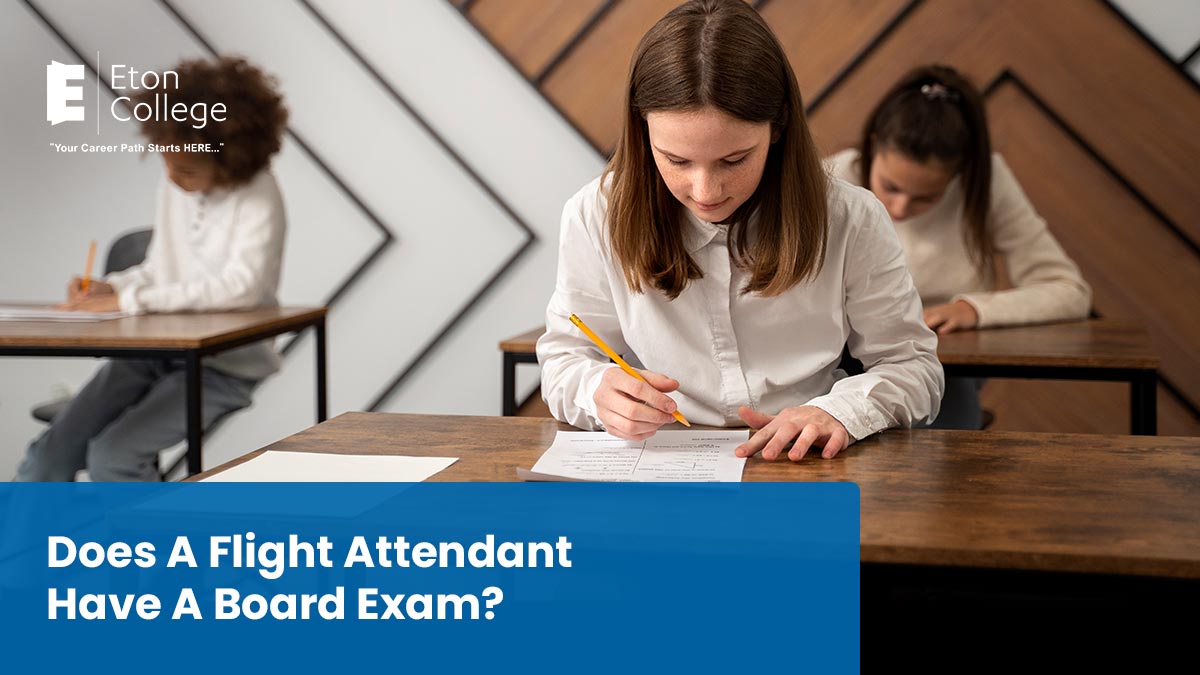- Flight attendants do not need to pass a formal board exam like in other professions, but they do undergo rigorous training and exams specific to airlines.
- Each airline has its own flight attendant exams that assess candidates on safety, service, and communication protocols.
- Flight attendants working in regions like Europe and Canada must meet local regulatory body certifications, such as the EASA Cabin Crew Attestation or Transport Canada’s Safety Training Certificate.
- Aviation authorities like the FAA or EASA require certifications that prove a flight attendant’s proficiency, rather than standardized exams.
- The process of becoming a flight attendant involves passing airline-specific exams and earning certifications, but not a traditional, formal board exam.
If you’re aspiring to become a flight attendant, you may be wondering about the requirements to get certified for this career. One common question is whether or not flight attendants must take a board exam, similar to other professions. The answer to this may vary depending on where you’re looking to work and the airline you’re applying to, but it’s important to understand the certification process that aspiring flight attendants must go through.
Let’s explore the certifications, exams, and training involved in becoming a flight attendant and answer the question: Does a flight attendant have a board exam?
Is There a Board Exam for Flight Attendants?
Unlike professions such as nursing or law, flight attendants do not need to pass a formal board exam to get licensed. However, that doesn’t mean the path to becoming a flight attendant is without its share of tests and certifications.
Most airlines have their own flight attendant exams or assessments that are part of their in-house training programs. These exams are designed to ensure that future flight attendants are knowledgeable about safety protocols, customer service, and emergency procedures. These exams are not national or state-regulated board exams but are nonetheless critical to becoming certified as a flight attendant.
Airline-Specific Flight Attendant Exams
While there isn’t a standardized flight attendant exam equivalent to a board exam, airlines require candidates to undergo rigorous training and pass their own exams to ensure that they meet industry standards. Each airline has its unique set of flight attendant exams based on their specific policies, aircraft models, and routes.
The typical airline flight attendant exam might cover the following areas:
- Safety Procedures: This includes how to manage emergencies such as fire outbreaks, water landings, or medical incidents. Flight attendants must know how to operate safety equipment, including life vests and oxygen masks.
- First Aid and CPR: Flight attendants are often the first responders during medical emergencies on board, so they must pass certifications in First Aid and CPR.
- Service Protocols: Flight attendants are tested on their ability to handle in-flight services like meal distribution, passenger management, and customer service protocols.
- Communication Skills: Airlines often assess communication abilities, ensuring flight attendants can handle passenger interactions in a calm and professional manner.
After completing the airline’s training program and passing the flight attendant exam, candidates are then considered certified by that airline and can begin their career.
Certification and Licenses for Flight Attendants
Even though there isn’t a flight attendant board exam, most flight attendants will receive certifications as part of their training, which are essential for their role. For example, one of the key certifications required by many aviation authorities around the world is the Cabin Crew Certificate of Demonstrated Proficiency, which is mandatory in the United States and several other countries.
This certificate is issued after flight attendants complete their training and demonstrate proficiency in safety procedures. The certification process ensures that flight attendants can manage in-flight emergencies, handle safety protocols, and respond to medical situations.
In some cases, aviation regulatory bodies such as the Federal Aviation Administration (FAA) in the U.S. or the European Union Aviation Safety Agency (EASA) in Europe may have certain certification requirements. However, these are not flight attendant exams in the traditional sense, but rather a certification that flight attendants must earn after completing their airline’s training.
International Flight Attendant Exams and Certifications
If you’re pursuing a career as a flight attendant internationally, you may need to meet the certification requirements of regulatory bodies in other countries. For example:
- European Union (EASA): In Europe, flight attendants must obtain a Cabin Crew Attestation (CCA), which certifies that they have completed training and demonstrated their ability to handle safety and emergency procedures.
- Canada (Transport Canada): In Canada, flight attendants are trained and certified according to Transport Canada regulations, and they must complete Transport Canada’s standards for safety protocols and receive a Safety Training Certificate.
While these certifications involve comprehensive training, they do not follow the traditional board exam format found in other professions.
No Formal Board Exam, But Rigorous Testing
In conclusion, although flight attendants are not required to take a formal board exam, they must undergo extensive airline-specific training and pass rigorous exams focused on safety, service, and emergency management. These exams ensure that flight attendants meet the high standards set by airlines and aviation regulatory bodies.
While a traditional board exam isn’t part of the process, comprehensive training is essential. Eton College’s Flight Attendant Preparation Program equips aspiring flight attendants with the knowledge and hands-on experience necessary to succeed. The program thoroughly covers critical areas such as safety protocols, customer service, and emergency response, ensuring graduates are fully prepared for airline-specific exams and the certifications required to launch their careers in aviation.




